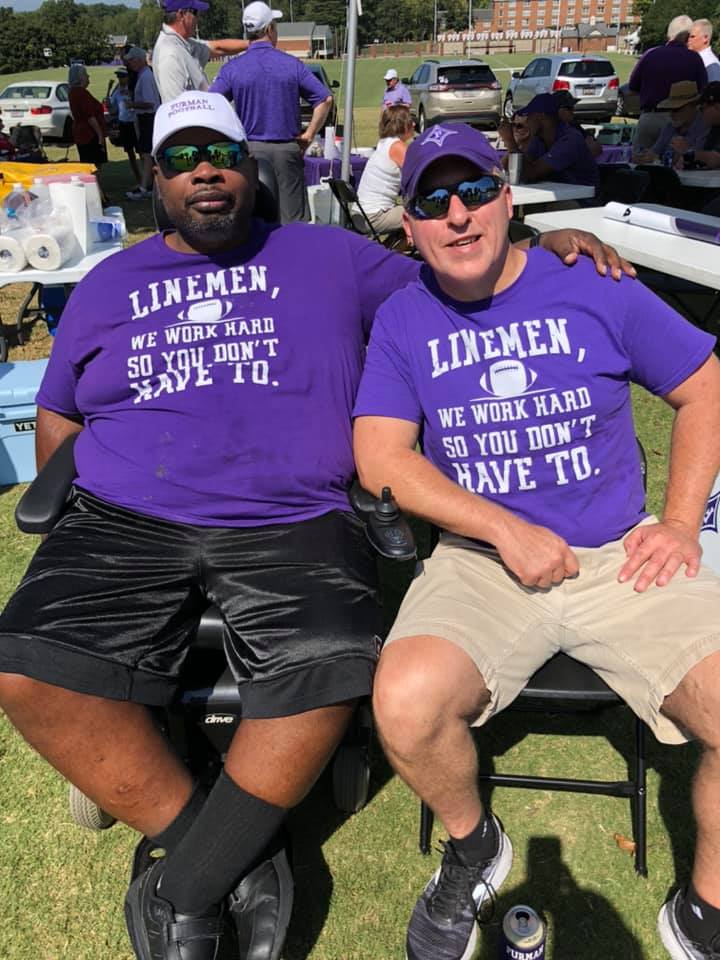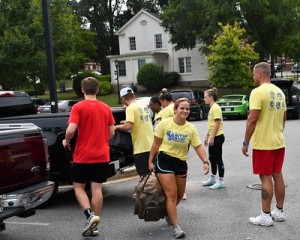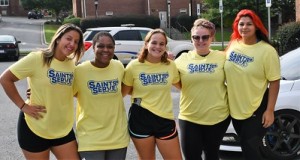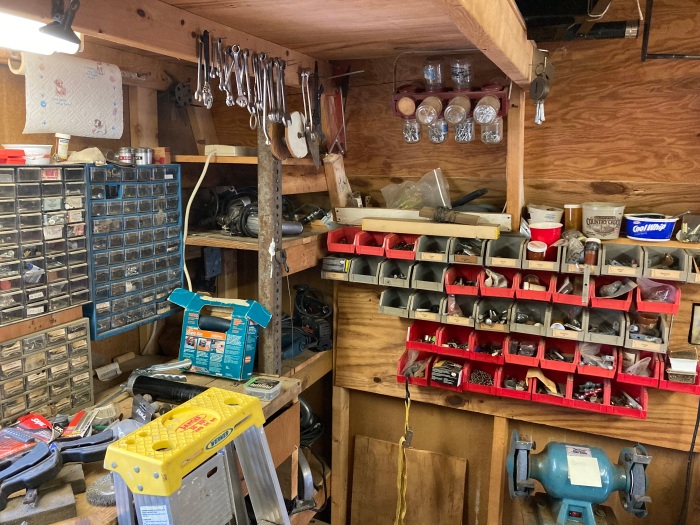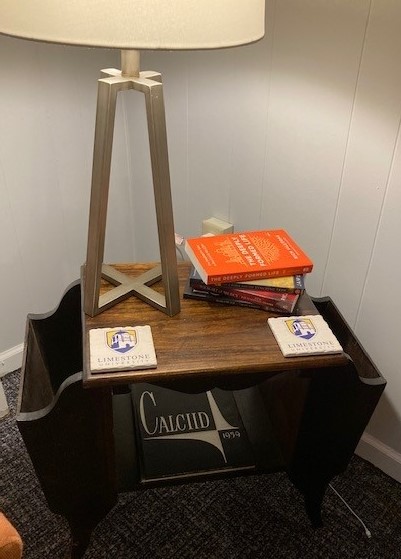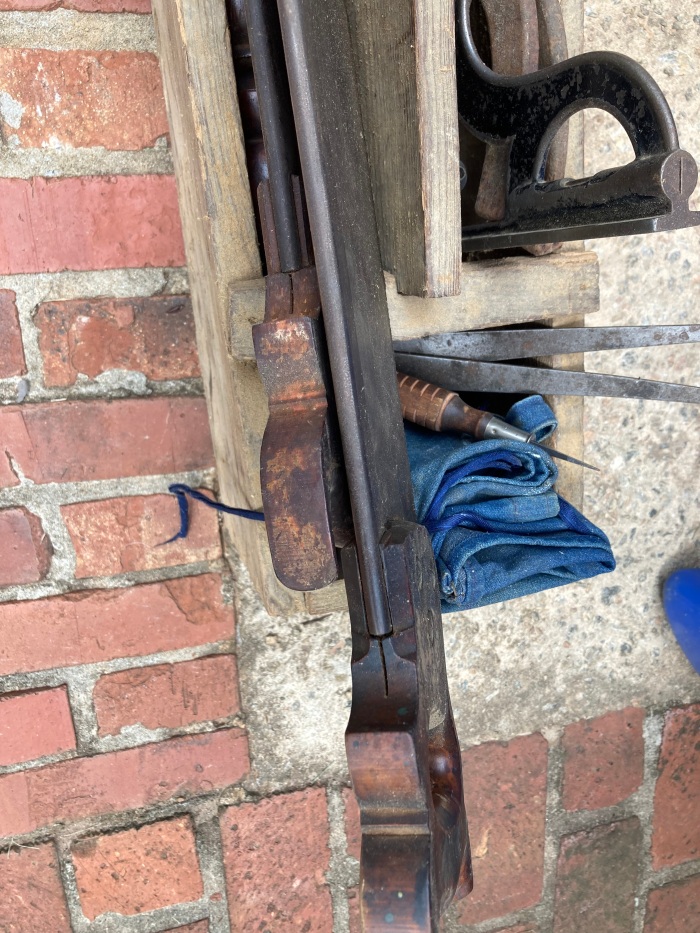One of my friends is fond of saying that he “does not hold tightly to brick and mortar.” I understand that, even agree with it. But living that mantra is a gut-wrenching challenge after 46 years.

406 Great Glen Road
Greenville, SC 29615
This address implanted itself into my memory when I was five years old. Over the last 46 years, it never left and never wavered. No matter where our journey took us around the world, we knew the power of an anchor at the top of the hill in the Del Norte neighborhood of Greenville, SC.
And no matter how challenging life was, we could return to that magnetic anchor to remind ourselves of where we came from and who we are. There would be candy in the dish, cookies in the jar, cereal in the pantry, and people to welcome us back to a place to call home.
On December 9, 2022, the physical presence of that anchor disappeared with the stroke of a pen.
After my mother passed away in June 2022, we knew one incontrovertible fact: things would never be the same at 406. Mom and Dad were in their 80s and had not moved since 1976. Their house certainly showed it! We knew we had to sell it, and whoever bought it would make it look vastly different.
In fact, it already looked vastly different from when we moved there. Add-ons and renovations—some that we liked, some that we did not—forever altered the original picture of the home where we grew up. Even those changes held memories of visits and celebrations and certainly ghosts of Christmases past.
Now those memories are all that remains. We signed our home over to a new family on December 9. My sister Kellie thought about buying the house. Hell, even I let it cross my mind for a minute or two. This really did not make sense for either of us, for many reasons. Even if we did, we would make major changes to create a space of our own.
I really did not think this sale would be hard for me. I moved out of that house in 1990 and never returned. Even during my first year of college in 1989, my mother destroyed my room by taking out all of the beautiful pennants, posters, sports memorabilia, and NFL curtains of my youth. For some reason, she decided to junk it up with nice furniture and curtains and all that “guest room” stuff.
The night before the closing, it hit me that this was hurting, far worse than I ever anticipated. I broke down early that Friday morning, telling my wife Tracy how hard this was. I barely went over to the house after it was empty—perhaps knowing deep down how hard this might be. I had to go for one last look that morning, before signing the papers.
It was almost more than I could take. When I went out to my Dad’s shop for the last time, I was overwhelmed with emotion and grief. That building was a shrine that I kept for all these years, a memorial to my father and his innate ability to do just about anything with his hands. I relished the ability to go out there and get any tool known to humankind, with my mother’s blessing.
To see it almost completely empty was unimaginable. It forced upon me the reality that he was gone. My mom was gone. And they are not coming back. Maybe that house kept me from fully facing such a reality—and that was about to go as well. For good.

I gathered the few little items that remained at the house, tossed them in Dad’s truck, and headed to the closing. This was it. And it was the right thing to do even if it was the most grueling thing to do.
My dad had a knack for pinching every penny he could out of anything he could. This meant that we never had a new lawnmower in my life. In fact, I WAS the lawnmower! We never had a riding mower that actually worked. No self-propelled. No mulcher. Just me and an 18-20-inch blade (smallest available!) and a rusty looking Briggs & Stratton on the top. One that NEVER started on the first try, mind you (since it did not have a primer pump on it).
After the 23rd pull, perhaps it would start. And I would begin my journey around the yard, sneezing all the way. I had terrible allergies that went haywire from the smell of grass and gas that filled my nostrils. Keep in mind that there was no guard to keep grass or dirt or rocks from spraying you while you cut. I regularly got nicked on the shins from whatever debris lay in wait for me.
And people wonder why I hate yard work.
Want to know the silliest thing about this? I would give anything to crank the mower and run it over the yard one more time. First off, all of their additions to the house make the yard a lot smaller than it used to be! Second, to have the honor of doing something for my mom and dad just one more time would be glorious.
One of the last things I did before leaving was to look under the house. Low and behold, there was a push mower—much better than the Snapper held together with zip ties and duct tape that I used! I pulled it out to give to my son, who now needs his own mower. How fitting that my last act at 406 Great Glen Road was to pull the hated lawnmower from under the house.
One of my friends is fond of saying that he “does not hold tightly to brick and mortar.” I understand that, even agree with it. But living that mantra is a gut-wrenching challenge after 46 years.
Empty kitchen. Empty living room. Empty attic. This was the overwhelming sense of dread and loss that filled me that Friday morning—emptiness. Perhaps I was saying goodbye to nothing more than a pile of brick and mortar, a collection of materials that would one day be gone no matter who utilized and lived in it.
It is so much more than that to me. Time and place and space are inextricably connected to the people that occupy them. This was not just letting go of a house. It was letting go of my parents. While I do believe that I will one day be with them again, that new time and place and space feels millions of miles away.
Nowhere did this hit me the hardest than riding by my mom’s house on the night of December 9. The very kind and gracious family that bought it did not appear to have moved in yet. So it is no surprise that there were no candles gleaming in the windows or Moravian star shining on the porch.
I cannot imagine a starker reminder that life has changed forever.
Anyone who knew Ann LeGrand knew that she loved Christmas, the one date around which her entire senior adult year revolved. Now, not gonna lie here—I did NOT miss getting her decorations out this year! Dad would never allow us to help him with the decorations. After he died in 2018, we did not exactly know the procedures for distributing the dozens of boxes stashed in the attic.
But no matter. My mother was perfectly happy to sit in her chair, directing traffic and correcting every misplaced trinket or figurine that was not situated in the appropriate order. It usually took most of Thanksgiving weekend and then some to get it all out and situated in the manner established in the LeGrand Bylaws and Constitution in 1976, heretofore remaining unchanged except for an edict from the Recliner of Ann.
Seeing those windows without life, in the second week of December, was simply unimaginable. One of my first jobs as a child was to make sure the tree and lights and candles came on before dark, and went off before bedtime. As much as I do not miss the ordeal of putting up/taking down all the things, I desperately miss their presence during Christmas.
Mom’s tree and various decorations are scattered to the children and grandchildren, memories of a wonderful history of our family at 406. I can still smell the cedar we used to decorate, and remember the childhood joy of putting every ornament on the tree. We had a real tree in the den and an artificial one in the living room by the window. The second was of course designed and decorated by my father, who measure the number of branches and hung color-coordinated ornaments in specific locations.
Those memories are more than just Christmas. They are the memories of who my mom and dad were and are and will continue to be in my heart. I spend the better part of my ministry hoping that I can live up to an inkling of who my father was as a pastor and servant of the poor and needy in the Greenville community. I pray that we can be as generous as my mother, who financially supported 26 different organizations in the last year of her life. (FYI–Pelham Rd. Baptist, Furman University, and Limestone University topped the list).
Our hope now, and for the immediate future, is to create those similar memories and moments for our remaining family, certainly for our own children. Our anchor is lifted, and we do not have 406 Great Glen Rd. as our place to call home. Yet the legacy of the people who lived there for 46 years remains.
Perhaps our eternal anchor is the lessons of life that Ann & Spencer LeGrand passed along to us. For all of their flaws, they taught us how to live and love one another, in the best and worst of times. Our prayer for now is that the new family living in that space will make it just as special and as much their own as our parents did.
Our prayer going forward is that we can impact the lives of others in the same way that mom and dad did, whether or not those we help see it and appreciate it. May we all see that it is not the gift of “things” that makes the difference in someone’s life, but the sacrificial gift of self that brings true meaning.
And may we find an anchor of faith, love, service, and compassion that holds us to what we know and believe. For such an anchor will hold power longer than brick and mortar ever will.
